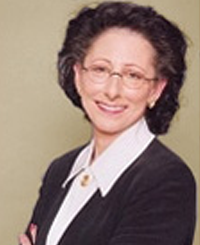Aging Parent: How Do I Know If I Should Be Worried?
Aging Parent: How Do I Know If I Should Be Worried?
By Barbara E. Friesner
NABBW’s Elder Care Expert

This is the time of year when we see parents and other aging loved ones that we may not have the opportunity to see the rest of the year. Regardless of how often you talk by phone throughout the year, seeing an aging parent in person tells you a lot more than phone calls alone can reveal.
The clues are all around you if you know what to look for. And the best part is that you can look around without making it a big deal for you or your parent.
Here are some things to look for:
- Is your loved one clean and well groomed?
- Is s/he properly dressed with clean clothes?
- Has s/he gained or lost significant weight?
- Is s/he walking well (eg: good balance and posture)?
- Do you notice changes to his/her hearing, sight or speech.
- Is s/he is more timid, apprehensive or withdrawn?
- Do you notice a change in short term memory? Does s/he seem confused and/or lose her/his train of thought easily and/or often? Does s/he ask the same questions and/or tell the same stories over and over?
If you go to their home:
- Has the neighborhood changed? Does it look safe?
- Is the exterior of the house maintained?
- Is the interior of the house neat, clean, and well maintained?
- Is the refrigerator stocked with fresh (or at least edible) food?
- Do you notice excessive clutter and things like piles of unopened mail, lots of sweepstakes offers, etc?
- If the home has stairs, can s/he navigate the stairs safely or does it look like s/he is now living on the ground floor because of an inability to climb the stairs?
What you see can run the gamut from “everything is fine” to “something is definitely wrong”. If you see something critical or alarming, obviously you have to take action immediately. If you don’t see anything out of the ordinary, then this is a great opportunity to deepen and strengthen the lines of communication for the future.
However, if you do see something – or even just sense something – that just doesn’t “feel” right but you are not sure of the extent of the issue, you need to dig deeper. Use the opportunity to talk with your aging parent face to face. Express your concern and gently ask questions about what you have observed.
With family gathered, this is a golden opportunity to get input from sibs, aunts, uncles, cousins, etc. on the situation, too. In addition, if an opportunity arises, discretely talk with your parent’s friends and neighbors and see if they have noticed any changes and ask them to let you know if they do . For example: “You see Mom more often that I do. How do you think she is doing? She seems a little more forgetful (distracted, frail, etc) than usual. Have you noticed it too? You know I worry about her so if you do see anything, would you please give me a call?”
And remember, if you are concerned that your aging parent need help now or may shortly and you don’t know how to proceed, I urge you not to wait for a crisis to develop.
© Copyright AgeWiseLiving™ 2010 You can find information about how to talk with your aging loved ones in “The Ultimate Caregiver’s Success System by going to www.AgeWiseLiving.com. While there, sign up for Barbara’s free weekly newsletter. You can also contact Barbara by calling toll-free (877) AGE-WISE. Barbara E. Friesner is the country’s leading Generational Coach and expert on issues affecting seniors and their families. She is an adjunct professor at Cornell University.


Leave a Reply
You must be logged in to post a comment.